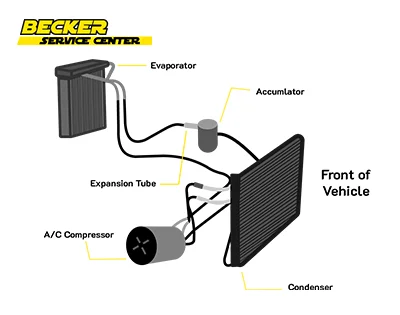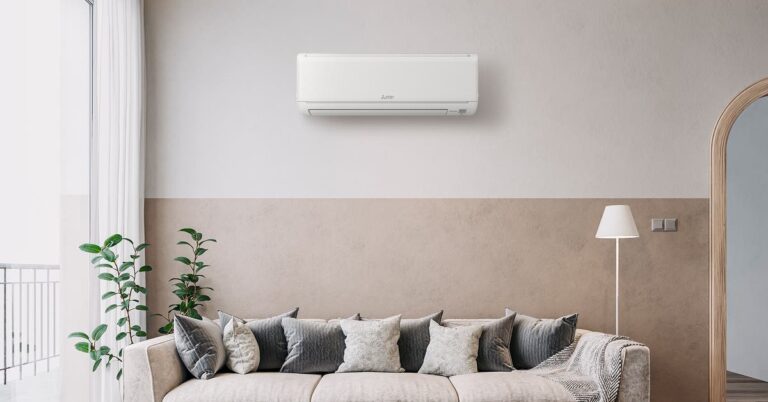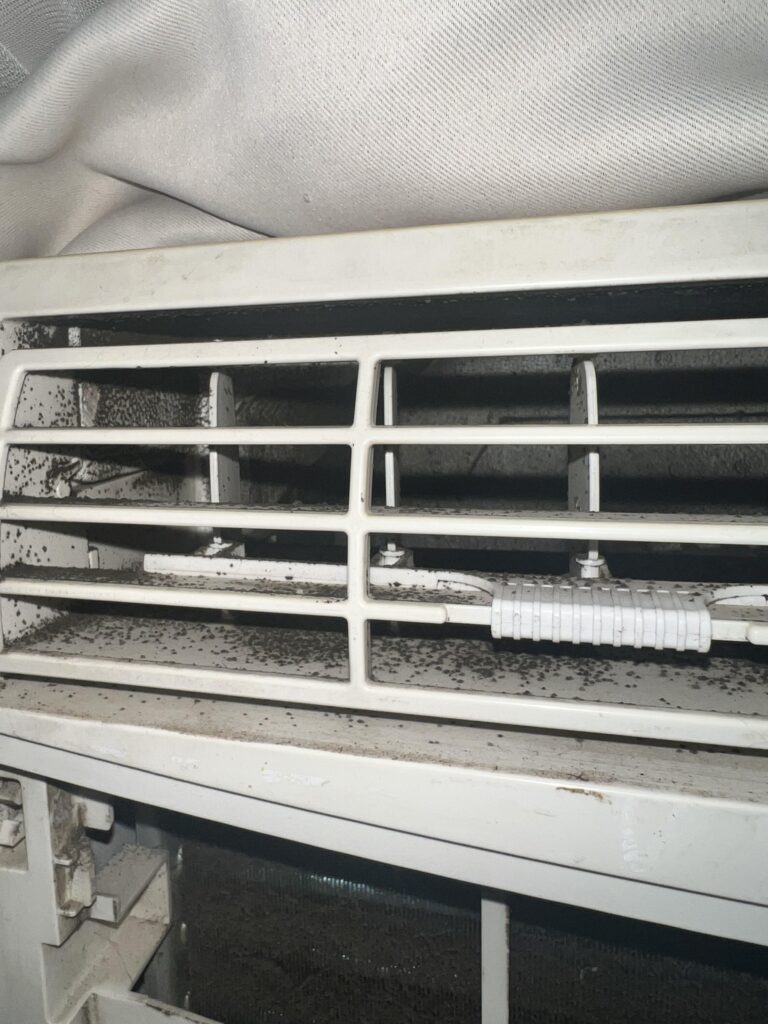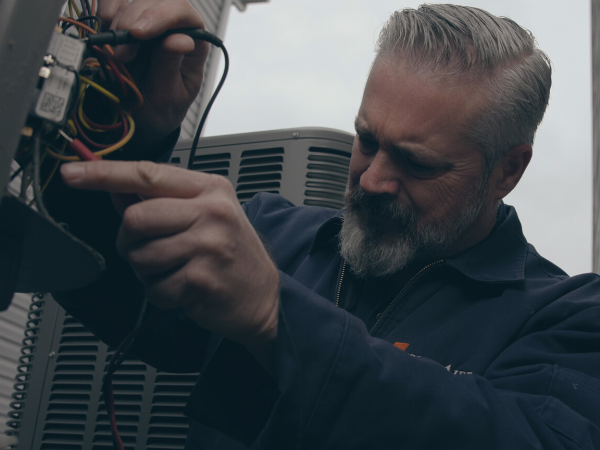Why Is My Air Conditioner Not Blowing Cold Air In My Car?: Troubleshoot Tips
Low refrigerant levels or a faulty compressor are common reasons why your car’s air conditioner isn’t blowing cold air. Other issues might include a clogged air filter or electrical problems.
Experiencing a malfunctioning car air conditioner can be quite frustrating, especially during hot weather. Several factors can contribute to this issue, ranging from simple fixes to more complex mechanical problems. Understanding the root cause can help you address it efficiently and ensure a comfortable driving experience.
Low refrigerant levels often result from leaks in the system, while a faulty compressor may need professional attention. Regular maintenance and timely checks can prevent these issues, keeping your car’s air conditioning system in optimal condition.
Common Causes
Is your car’s air conditioner not blowing cold air? This can be frustrating, especially on a hot day. Understanding the common causes can help you diagnose and fix the issue. Below, we explore two major reasons: low refrigerant levels and a faulty compressor.
Low Refrigerant Levels
One common cause of a malfunctioning car AC is low refrigerant levels. Refrigerant is the substance that cools the air. If the levels are low, the AC can’t cool the air effectively.
- Leaks: Small holes in the AC system can cause refrigerant leaks.
- Worn Seals: Over time, seals can wear out, leading to leaks.
- Poor Maintenance: Regular checks can prevent low refrigerant levels.
To fix this, you need to refill the refrigerant. A professional mechanic can check for leaks and refill the system.
Faulty Compressor
The compressor is the heart of your car’s AC system. It circulates the refrigerant through the system. If the compressor is faulty, the AC won’t blow cold air.
- Electrical Issues: Faulty wiring can stop the compressor.
- Clogged Components: Debris can block the compressor’s parts.
- Wear and Tear: Over time, the compressor can wear out.
Signs of a faulty compressor include strange noises and warm air. Replacing the compressor usually fixes the issue. Always consult a professional mechanic for this job.
Checking Refrigerant
One of the most common reasons for an air conditioner not blowing cold air in your car is low refrigerant levels. Refrigerant is crucial for cooling your car’s interior. This section will guide you through checking refrigerant levels and identifying signs of low refrigerant.
How To Check Levels
Before starting, you’ll need a refrigerant gauge set. Follow these steps:
- Locate the low-pressure service port. It is usually on the larger a/c line.
- Attach the gauge to the low-pressure port.
- Start the car and turn on the air conditioner to the highest setting.
- Read the gauge. Refer to the vehicle’s manual for the correct pressure range.
If the pressure is below the specified range, your car may have low refrigerant.
Signs Of Low Refrigerant
Low refrigerant can manifest in several ways. Look out for these signs:
- Warm air: The air from the vents is not cold.
- Unusual noises: The a/c system might make hissing sounds.
- Frequent cycling: The a/c compressor turns on and off quickly.
- Visible leaks: Oily residue around a/c fittings and hoses.
These signs indicate that the refrigerant might be leaking or too low.
Inspecting The Compressor
One key component to check is the air conditioner compressor. The compressor plays a vital role in the cooling process. If it fails, your car’s air conditioner won’t blow cold air. Let’s dive into the details of the compressor’s functionality and common issues.
Compressor Functionality
The compressor’s job is to compress refrigerant. This increases the refrigerant’s pressure and temperature. The hot, pressurized refrigerant then flows to the condenser. Here, it cools down and turns into a high-pressure liquid. This liquid moves to the expansion valve, where it cools even more. Finally, it flows to the evaporator, cooling the air before it reaches you.
Common Compressor Issues
- Compressor Clutch Failure: The clutch connects the compressor to the engine. If it fails, the compressor won’t run.
- Electrical Issues: Faulty wiring or blown fuses can stop the compressor from working.
- Leaks: Refrigerant leaks reduce pressure, making the compressor ineffective.
- Mechanical Failures: Internal damage or wear can cause the compressor to fail.
| Issue | Symptom | Solution |
|---|---|---|
| Compressor Clutch Failure | No cold air | Replace the clutch |
| Electrical Issues | Compressor doesn’t start | Check wiring and fuses |
| Leaks | Low refrigerant levels | Fix leaks and recharge refrigerant |
| Mechanical Failures | Strange noises | Replace the compressor |

Credit: beckerservicecenter.com
Examining The Condenser
Your car’s air conditioner may not blow cold air due to condenser issues. The condenser is a vital part of the cooling system. It transforms refrigerant from gas to liquid. Examining the condenser can help you find the problem.
Condenser Blockages
A blocked condenser can cause the air conditioner to fail. Dirt, leaves, and bugs often block the condenser. These blockages stop air from flowing through. This reduces the cooling effect.
A dirty condenser can’t release heat. This makes the air conditioner work harder. Always check for blockages when your AC isn’t cooling.
Cleaning The Condenser
Cleaning the condenser can restore cooling power. To clean the condenser, use a soft brush. Gently remove dirt and debris.
A garden hose can help rinse off the dirt. Be careful not to bend the fins. Bent fins can restrict airflow.
For tough dirt, use a special condenser cleaner. Follow the instructions on the cleaner. Regular cleaning keeps your AC working well.
Air Filter Maintenance
Is your car’s air conditioner not blowing cold air? One common cause is a dirty air filter. Proper air filter maintenance can ensure your AC works efficiently. Let’s explore why clean filters are crucial and how to replace them.
Importance Of Clean Filters
A clean air filter is essential for your car’s air conditioner. It ensures proper air flow and prevents dust and debris from entering the system. A clogged filter restricts air flow and reduces cooling efficiency.
Dirty filters can lead to several problems:
- Reduced cooling performance
- Increased energy consumption
- Potential system damage
- Unpleasant odors inside the car
Regularly checking and replacing your car’s air filter can prevent these issues. Clean filters help maintain a comfortable and cool interior.
How To Replace Filters
Replacing your car’s air filter is a simple process. Follow these steps to ensure your AC works efficiently:
- Locate the air filter compartment. It is usually behind the glove box.
- Open the compartment carefully. Remove any screws or clips.
- Take out the old filter. Note its orientation.
- Insert the new filter in the same orientation.
- Close the compartment. Secure it with screws or clips.
Regularly replacing the air filter ensures efficient AC performance. Check the filter every 12,000 to 15,000 miles or as recommended by your car’s manual.
Keep your car’s AC in top shape with proper air filter maintenance. Enjoy a cool and comfortable ride!

Credit: www.youtube.com
Electrical Issues
Electrical issues can often cause your car’s air conditioner to stop blowing cold air. Problems like blown fuses or faulty wiring can disrupt the system. Understanding these issues can help you fix them quickly.
Blown Fuses
A blown fuse is a common electrical problem. The fuse protects your car’s electrical circuits. When it blows, the AC stops working. Check the fuse box under the dashboard or hood. Look for a blown AC fuse. If you find one, replace it with a new fuse of the same rating.
Faulty Wiring
Faulty wiring can also cause AC issues. Over time, wires can become damaged. Damaged wires disrupt the electrical flow. This stops the AC from working properly. Inspect the wiring for any visible damage. Look for frayed or disconnected wires. Fixing the wiring may restore your AC function.
Thermostat Problems
Is your car’s air conditioner not blowing cold air? The thermostat might be the problem. The thermostat helps control the temperature of the air. If it is broken, the air conditioner might not work well.
Calibrating The Thermostat
Sometimes, the thermostat just needs to be calibrated. Calibration means setting it to the right level. You can check if the thermostat is set correctly. Here is how you can do it:
- Turn on the car and let the engine warm up.
- Set the air conditioner to the coldest setting.
- Use a thermometer to check the air coming from the vents.
- Compare the thermometer reading to the thermostat setting.
If the readings do not match, the thermostat may need adjusting. This task might need a mechanic’s help.
Thermostat Replacement
If calibration does not fix the problem, the thermostat might need replacing. Here are signs that your thermostat needs replacement:
- The air conditioner blows warm air.
- The air conditioner cycles on and off quickly.
- The temperature gauge reads high.
A mechanic can replace the thermostat for you. This job is usually quick and not too expensive.
Professional Help
When your car’s air conditioner stops blowing cold air, seeking professional help can be essential. A mechanic can diagnose and fix the issue quickly. Below, we’ll discuss when to seek help and how to choose a reliable mechanic.
When To Seek Help
If your AC isn’t blowing cold air, it may be time to call a professional. Look for these signs to know when to seek help:
- Weak airflow: If the air comes out weakly, a mechanic can help.
- Strange noises: Unusual sounds may indicate a deeper problem.
- Unpleasant odors: Bad smells could mean mold or a leak.
- Temperature issues: If the air isn’t cold, there might be a refrigerant leak.
Choosing A Reliable Mechanic
Finding a trustworthy mechanic is crucial. Here are some tips to choose the best one:
- Check reviews: Look online for customer reviews and ratings.
- Ask for recommendations: Friends and family can suggest reliable mechanics.
- Verify credentials: Ensure the mechanic is certified and experienced.
- Get estimates: Compare prices from different mechanics before deciding.
Choosing the right mechanic ensures your air conditioner gets fixed properly. This helps avoid future problems and keeps you cool on the road.

Credit: aceautoutah.com
Frequently Asked Questions
Why Is My Ac Running But Not Cooling In My Car?
Your car’s AC might not cool due to low refrigerant, a clogged condenser, or a faulty compressor. Check for leaks and blockages. Seek professional help if needed.
How To Make Car Ac Cold Again?
To make your car AC cold again, check and refill refrigerant levels. Clean or replace the air filter. Inspect for leaks and seal them. Ensure the compressor is functioning properly. Regular maintenance keeps your AC efficient.
How Do I Know If My Car Needs Freon?
Your car might need Freon if the air conditioner blows warm air. Check for hissing noises or visible leaks.
Conclusion
Experiencing a car air conditioner not blowing cold air can be frustrating. Regular maintenance is essential for optimal performance. Check refrigerant levels, inspect for leaks, and ensure a clean air filter. If issues persist, consult a professional. Keeping your AC in top shape ensures comfortable drives, especially during hot weather.





